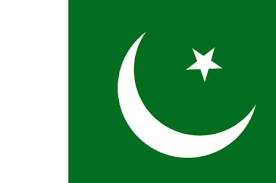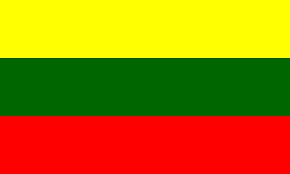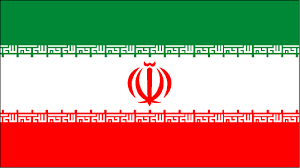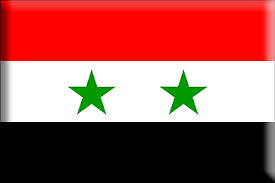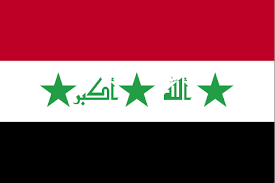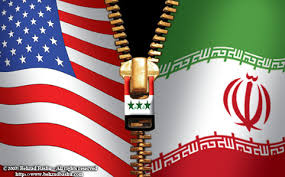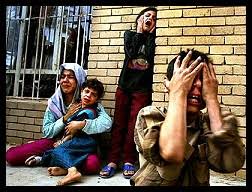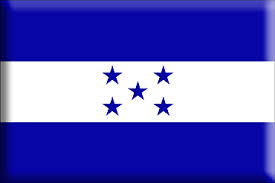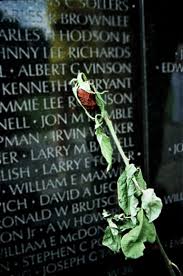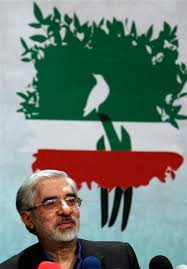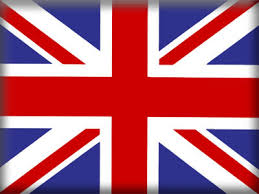Lithuanians on the Moon
and
Speaking the Language

Mohammad Jan Kendewalli points to ‘nearby’ villages.
01 July 2009
Chaghcharan, Ghor Province, Afghanistan
Lithuanian Lieutenant Marius Varna walked me around the perimeter of the small camp and we scanned the massive desolation of Afghanistan. The expanses, the dust, and the overwhelming sensation of brown and near-absence of refreshing green, under blue skies and squinting-bright sun. Only a handful of scrubby trees to be seen. One mountain wore a tint of green, as if it had been spray-painted from too far. Varna said it had sprouted after a rain a few weeks ago.
Nearby homes, mostly those of Tajiks, are formed from mud. The dwellings are unvented, and so the cooking fires inside lead to many illnesses.
 The history of this land is mysterious and rich. Rudyard Kipling apparently based his book The Man Who Would Be King on the Pennsylvania-born American, Josiah Harlan, who’d come here to conquer and rule.
The history of this land is mysterious and rich. Rudyard Kipling apparently based his book The Man Who Would Be King on the Pennsylvania-born American, Josiah Harlan, who’d come here to conquer and rule.
A BBC article explains:
“Harlan was a Pennsylvania-born adventurer who travelled to Afghanistan in the early 19th century, having sworn never to return to the US after an incident in Calcutta left him stranded.
He headed to Afghanistan with the intention of being made a king. He soon met up with Afghanistan's exiled king, to whom he was contracted to stir up rebellion in Kabul.”
Harlan must have been one crazy American to venture here some 170 years ago, though he was honored with the title “Prince of Ghor,” a title that his descendents now inherit. Kipling’s book was made into a film starring Sean Connery.
At over 2,280 meters above sea level (nearly 7,480 feet), the capital city of Chaghcharan has no factories, few cars or motorbikes, and air that is fresh and dry (and thin). Yet these are the lowlands. For about six months out of the year, the mountains around us could just as well be blanketed under a hundred miles of snow. When the snows arrive in about November, the place is socked in. The nearest paved road is about 380km (236 miles) away at Herat. Tens of thousands of people in the surrounding mountains and in this lowland are cut off from the world. There is nowhere to go but here. None of the Afghans have internet access, but there are cell phones.
Even the Provincial Reconstruction Team (PRT), run by the Lithuanians, becomes isolated other than by virtue of the gravel airstrip. They sometimes go several weeks without a flight. The place might as well be a spaceship, isolated first by the snows, then by the floods from the melting. This is a common story in Afghanistan.

This Swedish flight began in Kabul, flew to Kandahar, then dropped off passengers here in Chaghcharan and flew away. One UN helicopter was parked at the airstrip. Landing at this altitude on an icy gravel strip must be pretty exciting for the pilots. Due to the weather, sometimes no flights arrive for weeks at a time. It would cost about $14m U.S. to build a proper little airport, but this would be the first big step in opening this place to construction.
There is not a single Afghan soldier in Ghor Province, and not one inch of paved road. As mentioned, the nearest paved road is about 380km toward Herat, or about the same to Kabul. Both are rough trips even during good weather. There are tribal frictions, banditry, and treacherous passes. One officer told me that it would cost about a million dollars per kilometer to build a paved road from Kabul through Chaghcharan and on to Herat. The cost would be nearly $800m U.S.
Chaghcharan is so far out that it might hardly seem worthy of our efforts to be here while we are critically short on troops.
And so why did Lt. Varna send me this message?
“Since 2005, this has been the most important mission for the Lithuanian Armed Forces, as Lithuania has been entrusted with an independent command of the province as part of the NATO-led International Security Assistance Force (ISAF).”
That’s an interesting question; countless easily accessible places are in equal need of humanitarian assistance. More on that later.
The base itself is an international potpourri with soldiers and civilians from Croatia, Denmark, Georgia, Japan, Philippines, Sri Lanka, Ukraine, Romania, the USA, and probably a few more countries. And today there are Italian pilots whose helicopter is having difficulty. From above, this base is just a sesame seed on the body of Afghanistan, but down here it’s a little Starship Enterprise. When I met the Lithuanian base commander, Colonel Alvydas Siuparis, I wanted to call him Captain Kirk, but he’s pretty big so I didn’t push my luck.
Amazingly, despite all the languages spoken on base and off, the people seem to communicate well enough.English is the lingua franca [
One certainty: the approximately two hundred people here at the PRT, led by the Lithuanians, are serious about making their imprint and pulling this place another meter forward. Ghor is austere and the PRT is tiny, so nobody is jumping for joy to be here, but it’s clear by the way they keep their gear and go about their business that they are serious about completing the mission, despite that it’s truly not fun.
Monday, some Lithuanians wanted to visit a local television station. And so we set off down the dusty road out of the PRT, by a tiny refuge settlement on the right. The Lithuanian mission was being led by Major Tomaj Madzar, a Croatian soldier, which was good for me because it meant the mission would be in English since he doesn’t speak Lithuanian. Major Madzar said the refugee camp sprouted up after some tribal fighting. It was a sorry shambles of raggedy tents flopping in the warm breeze.
 On our left was the Hari River where people were washing a few vans, and maybe a hundred sheep were drinking while the shepherd waited about. The Hari River also passes by the giant “Jam Miniret” in Ghor, which is 65 meters tall. Nobody knows exactly who built it or why, but some think it might be about 800 years old, and there is said to be a Jewish cemetery nearby. Lithuanian archaeologists working in Ghor more recently discovered human artifacts that might be thousands of years old, and also ancient Buddhist sites of unknown age.
On our left was the Hari River where people were washing a few vans, and maybe a hundred sheep were drinking while the shepherd waited about. The Hari River also passes by the giant “Jam Miniret” in Ghor, which is 65 meters tall. Nobody knows exactly who built it or why, but some think it might be about 800 years old, and there is said to be a Jewish cemetery nearby. Lithuanian archaeologists working in Ghor more recently discovered human artifacts that might be thousands of years old, and also ancient Buddhist sites of unknown age.
After taking a left and crossing a small bridge made of bricks and stone (which I was told had been paid for by USAID), we drove down the main street of Chaghcharan.
Hari River at the Jam Minaret

Chaghcharan, capital city of Ghor Province, is home to about 15,000 people, mostly Dari-speaking Tajiks, and is roughly the halfway point between Kabul and Herat.
It would not have been surprising to see Fred and Wilma Flintstone roll by. I watched for men wearing tennis shoes. The Taliban and associated enemies often wear tennis shoes [

Watch the shoes.
We arrived at the television station and were greeted by the “chief,” Mohammad Jan Kendewalli, a Chaghcharan native and Dari speaker. So the meeting would be between an Afghan, a Lithuanian, a Croatian, and me, but luckily we had the Afghan interpreter named Feisal. The soldiers presented a needed computer to Kendewalli’s staff while we began the long meeting.
I do not vouch for the veracity of Kendewalli’s words, other than to say that he warned me, very politely, to be accurate. If his words were accurate, thus is the following account:
Kendewalli said that the Indian government had formed an agreement with the Afghan government to set up a national television broadcasting system throughout the provinces. This station, to serve Ghor Province, was set up one year later in 2007. June 30 will mark its second anniversary. The Indian government donated an antenna, 30kw generator, 100kw transmitter and other associated gear such as cameras. [This television business must cause concern for Pakistan.] The 32 batteries powering the UPS have stopped working and he cannot afford the $600 needed for replacements, but the system still mostly works. Kendewalli seemed perturbed that Indian government did not build the studio he said they promised.
Kendewalli said the transmitter will reach a 30km radius, 25-30 thousand people, and that most families have a small television. Kabul wants him to broadcast for eight hours per night, which he says is impossible because there is fuel for only four hours, and besides that, the electricity in Chaghcharan works only for five hours per night, so how could the people watch eight hours of television?
This is the only channel in Ghor Province, but many languages are spoken here, so I asked about the languages that are used to broadcast. Kendewalli answered that he broadcasts in Turkoman, Pashai, Balochi and some Hindi. But the primary languages in Ghor are Pashto and Dari. Most broadcasting is in Dari, and after that Pashto.
I asked how much broadcasting is generated by his station, and how much is piped in from Kabul. Kendewalli said he transmits 1.5 hours of local coverage, and the other 2.5 comes from Kabul, but Kabul wants all four hours of the transmission time. Kendewalli said his entire budget is only $1,000 per month and he needs $2,600 just for fuel. Fuel was a touchy subject with the chief, and he went on for several minutes.

Croation Major Tomaj Madzar presents an award from the Lithuanian PRT commander to the Afghan television chief while an American makes a photo. Small Lithuanian and Afghan flags were on Kendewalli’s desk. The chief expressed thanks to the PRT, and to the Lithuanians.
Changing the subject, I asked if there were any radio stations, newspapers or other forms of media. Kendewalli said there was no radio (Lt. Varna said there is a private station), but there were about six newspapers. None are dailies, but there are weeklies, bi-weeklies, and monthlies. Kendewalli said most can’t read anyway, and so the way to reach them is through his station. Kendewalli said that the people can never understand democracy unless someone explains democracy. “If they are not educated, they are asleep,” he said.
After maybe an hour of learning about the dramas of being the only television station in Ghor Province, I asked if there was anything specific that he wanted to get out to a broader audience. Kendewalli’s answer was as succinct as it was unambiguous: “I need fuel.”
From here out, the conversation was all over the map. Kendewalli wanted to keep talking about the people. He walked up to a giant poster on the wall, depicting landscape that was literally right outside his front door. He pointed to the snow-covered peaks and pointed out villages that were invisible on the poster, saying those villages and many others are snowed in for about six months each year. He said the people actually stayed up there through the winter, which was incredible to even consider. They must be like Eskimos. They have no schools, no clinics, no nothing. They can’t even come down to Chaghcharan, which also is trapped. He said that the better-off families might have 1-2 cows or 5-10 sheep. And they stay up there, isolated for months at a time.
I asked about the temperatures. The television chief answered that in 2006, the temperature once reached -42ºC (about -44ºF) right here in Chaghcharan, which is in the valley. He saw the looks of disbelief on our faces, and repeated, saying it was true. He said that for a very, very short period, the temperature surely reached -42ºC, and that was the coldest he’d ever seen in the town. From there he spontaneously said that he had noticed the climate change over the past 25-30 years and that it’s getting warmer.
Kendewalli said the primary problems in Ghor Province are the following:
1) Lack of education
2) Poverty
3) Joblessness
He said the men go to Iran and Pakistan for money, or down south to harvest the opium and fight the Coalition. But, I protested, don’t the Tajiks hate the Talibs? Yes, he answered, but they need the money.

Lithuanian soldier outside the television office.
“How much do they earn for fighting?” I asked.
Kendewalli said they get clothes and food, a Kalashnikov and a little money. I asked how much money and he laughed, saying it depends on their job and how they do. If they kill soldiers they earn more. He reiterated that they hate the Taliban but need the money, so they go off to fight and harvest opium and then come home. He said the fight in Helmand has nothing to do with the opium, and that the British came back for uranium. He said that Afghanistan is very rich in resources, and global powers constantly come to fight but they always lie.
Despite his direct words, throughout the talk he seemed genuinely friendly. He was not complaining, as I saw it, but merely answering my questions.
I asked about his education. Kendewalli said he graduated from high school in Chaghacharan, then studied teaching one year in Herat, but quit school because his family was poor. So he returned to Chaghacharan and taught “all subjects.”
He seemed genuinely happy with the help from the PRT, but said the United States is wasting all that money fighting down south, and that construction here was too slow. And Kendewalli warned me several more times to say exactly what he said.
And that was it. The Lithuanians bought a goat and loaded into an SUV, and we headed back to base while I watched for men wearing tennis shoes.

That night, under the bright moon, I put the camera on a sandbag and clicked the shutter.
08 July 2009
For Lithuanian speakers, please see:
Lietuviai mėnulyje
tardamas šiuos žodžius2009 m. liepos 1 d.
Čagčaranas, Goro provincija, Afganistanas
Lietuvis vyr. leitenantas Marius Varna palydėjo mane aplink nedidelę stovyklą ir prieš mus atsivėrė didžiulė Afganistano erdvė. Platybės, dulkės ir gniuždantis rudos spalvos pojūtis, beveik nėra gaivinančios žalumos, tik dangaus mėlynė ir spiginanti ryški saulė. Matyti vos keletas skurdžių medžių. Vienas kalnas atrodo žalsvas, tarsi jį kas būtų iš toli apipurškęs dažais. Ltn.Varna paaiškino, kad žolė ten pasirodė po prieš keletą savaičių nulijusio lietaus.
Please support this mission by making a direct contribution. Without your support, the mission will end. Thank you for helping me tell the full story of the struggle for Iraq and Afghanistan.
As always, this dispatch has been reprinted with permission from the author, Michael Yon.





